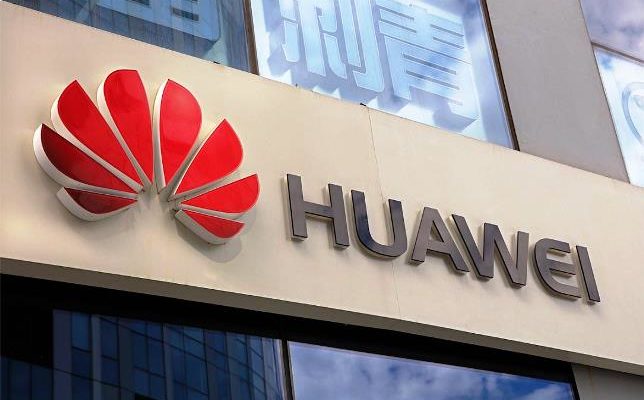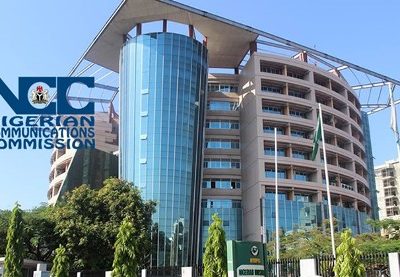Following a rejection of an application by Huawei to provide 5G equipment in Romania, erroneous information appeared the media. A fact check is in order. The following are the facts.
The history and development of telecommunications is closely linked to national security. Just as NATO countries do not buy military aircraft from China, restrictions are placed on critical infrastructure and communications equipment from the country.
RELATED: You Are Not Welcome: Analysis of thousands foreign tech companies blocked by China since 1996 – Strand Consult
By the same token, China buying US-made equipment for its mission-critical functions would be suspect by the Chinese government. AT&T‘s contract for the First Responder Network Authority (FirstNet) forbids the use of Chinese-made equipment in the network. In the United Kingdom, once Everything Everywhere (EE) merged with the incumbent BT, the core network equipment from Huawei was removed from the Emergency Services Network (ESN). Motorola Solutions builds and runs Denmark’s public safety networks (SINE) without Chinese-made technology.
- In 2021, the Romanian government made a security law that required suppliers to have an approval from the Supreme Council of National Defense (CSAT) to sell 5G equipment. The legislation states that equipment from untrusted vendors must be replaced by 2026 (core network) and 2028 (RAN equipment).
- To provide 5G equipment in Romanian mobile networks after 2026 (Core) / 2028 (RAN) , the vendor must apply to the Supreme Council of National Defense (CSAT) for an approval. In the period from 2021 until 2024, Huawei chose not to apply for such a permit. This is despite the marketed and sold telecommunications equipment in Romania, which has a lifespan extending beyond 2026/2028.
- In the media, Romania appears as a country that has introduced legislation that limits Huawei’s options based on American wishes/demands. The fact is that restrictions related to the use of Chinese equipment in vital infrastructure did not originate with the USA, and moreover, it predates the US activities significantly.
- The first country in the world, taking an official stance already in 4G was Australia, where back in 2012 Social Democratic Prime Minister Julia Gillard made a ban on the use of Chinese equipment. Other countries have later followed Australia.
- To safeguard security and resilience, the EU developed a foundational and globally unique approach to security of 5G networks with the EU 5G Toolbox. The EU deems 5G networks critical for their horizontal role underpinning the delivery of health, energy, manufacturing, media, and mobility.
- The European Commission, European Union Agency for Cybersecurity (ENISA), and the Body of European Regulators for Electronic Communication (BEREC) developed an EU-wide coordinated risk assessment. Based upon a set of identified risks, the EU 5G Toolbox was developed and agreed to include strategic (non-technical) and technical mitigating measures. In sum, the European Commission and the EU member states implement key measures in two areas; strategic (non-technical) and technical security measures, both of these assessments and mitigation measures must be satisfied to deem 5G equipment suppliers as secure and trusted.
- EU European Union 5G Toolbox was originally developed by EU member states. In the 2nd Progress report of the EU 5G toolbox (June 2023) all 27 EU Member States pledged to fully implement the EU´s 5G Toolbox. As of June 2023, 24 Member States have adopted the toolbox or were in the process to do so, for example by preparing legislative measures which vest the local authority to perform security assessments. By June 2023, only 11 Member States had taken measures to implement high risk vendor restrictions. As all EU countries support the 5G Toolbox, its implementation moves toward the de facto removal of Huawei and ZTE from European mobile networks.
- There is nothing new in the nation’s desire for security of supply. Stability, resilience, scale, and local production are political touchstones in trade policy, though these concepts can be manipulated for a particular interest. Telecommunications is just one industry that can be singled out; transportation is another.
- Foreign technology providers have faced systematic blockade in the Peoples Republic of China (PRC) as well as sudden, inexplicable, and undress able restrictions. IPVM explains in the report How the PRC Blocked Out Foreign Tech Products Claiming Security Risks the difference in the US and countries like Romania is that any effort to restrict technology is conducted through a lengthy constitutional process allowing the provider due process and judicial redress. The regulatory instruments are tailored to confine restrictions to specific products and timeframes for specified reasons. Foreign providers in PRC do not enjoy such fair treatmenton, 5G Huawei´s and ZTE´s marketshare in China is 98%. Watch this video.
- CASE: Foreign technologies and operators have been denied access to the world’s single largest online market, hundreds of millions of internet users, and a multi-trillion-dollar opportunity. Chinese people are denied to freedom to engage on an open internet. Building upon censorship frameworks in traditional media which had been in place for decades in the PRC, the State Council adopted rules and regulatiosn to control internet traffic beginning in 1996. Broad categories of information were prohibited including harms to national security, state secrets, or social stability, or anything deemed sexually suggestive. Thereafter a set of requirements were imposed on internet service providers: licenses to deliver internet content, traffic distribution through official exchange points, intermediate liability, and certification that all content on their networks is legal. Subsequently, the PRC developed a set of techno-nationalist policies to promote that the hardware and software of the internet is made in the PRC, as well as blueprints for a new architecture of the internet. This encompasses the whole internet value chain from SMIC for the semiconductors, Huawei for the network equipment; Lenovo for the laptops; Inspur for the servers; and Alibaba, Tencent and Baidu for the applications—among other PRC firms. For more information: You Are Not Welcome: An Analysis of Thousands of Foreign Technology Companies Blocked by China Since 1996
- CASE: Many people talk about electric cars and not least the success that many Chinese manufacturers have in this area. People just forget that an electric car is a smartphone on wheels, that it has more censors built in than a mobile phone and that it continuously sends data back to the car manufacturer. In China, automakers are forced to share this data with the authorities. A modern electric car can not only be used to spy on those sitting in the car, it can also be remotely controlled and used as a weapon against those who walk the streets. Please look at this report: Security recall: The risk of Chinese electric vehicles in Europe
- CASE: Global positioning systems or GPS is one case. Even though the US invented the satellite-based navigation system and it’s available worldwide for free, Europe launched Galileo; Japan, QZSS; Russia, GLONASS; India, IRNSS and China, BeiDou. These navigation solutions have a prominent role in defense for their respective nations.
- CASE: In 2017, China implemented a National Intelligence Law which compels any Chinese subject to conduct espionage on behalf of the government (article 7). While ordinary citizens can be compelled to spy, operationalizing passive surveillance within networks through backdoors and other means is more effective. Given the increasing integration of software in network equipment, these backdoors are increasingly difficult to detect, as they can be shipped in subsequent software upgrades or activated after security clearances are concluded.
- CASE: Today China suppresses not only basic human rights, but also people’s ability to practice the religion they believe in. Many articles have been written about how China monitors and represses Uyghurs in Xinjiang. We are talking about people being placed in prison camps for the purpose of suppressing their religion and re-educating them with the values that the Chinese dictatorship believes should apply in China.
- CASE: Other religions experience the same oppression, the Catholic Church and other Christian churches do not have the best conditions in China. Last year China passed a “Patriotic Education Law,” consolidating the Chinese Communist Party’s control over education, including religious education. The new law, which was passed during a session of the National People’s Congress Standing Committee, would require churches and religious groups to adapt their educational activities to promote the party’s official ideology.
The media makes blow-by-blow coverage of EU and US restrictions on sensitive technology trade with China, however it rarely covers China’s blockade of entire categories of foreign goods and services for decades. These blockades are generally imposed by fiat, without due process or opportunities for redress.
If policymakers in democratic countries adopt restrictions, they must adhere to the rule of law, follow a defined administrative process, and offer affected parties the opportunity to defend themselves and challenge the rulings. Indeed, Chinese companies can access national top lawyers for defense, and Chinese parties receive more deference in courts in the free world that foreign parties could ever imagine in China.
If you want to know more about network security, telecom equipment, and China policy – listen to podcast with 2 hours of concentrated knowledge or watch a 2 min. 37 sec video from Huawei.
To learn more about this complex issue, see Strand Consult’s many reports about China and cybersecurity.































